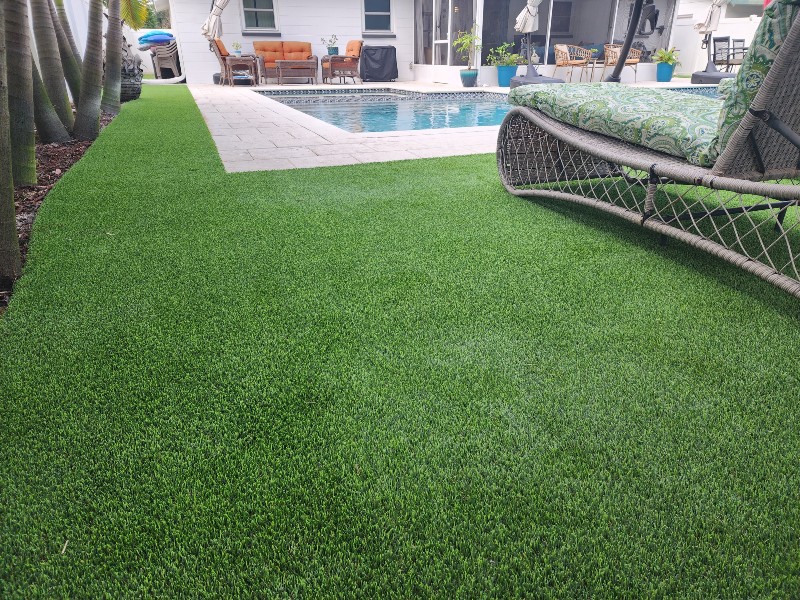Synthetic grass, often referred to as artificial turf, has emerged as a compelling alternative to traditional natural grass lawns for several reasons:
1. Low Maintenance:
Unlike natural grass, synthetic turf requires minimal upkeep. It doesn’t need mowing, watering, fertilizing, or pesticides to maintain its lush appearance. This not only saves time and effort but also reduces the use of water, fuel, and chemicals associated with lawn care.
2. Drought Resistance:
Synthetic grass remains green and vibrant year-round, regardless of weather conditions. It doesn’t rely on rainfall or irrigation systems to thrive, making it an ideal choice for regions prone to drought or water restrictions. This water-saving feature contributes to conservation efforts and reduces utility costs for homeowners.
3. Durability:
Synthetic turf is designed to withstand heavy foot traffic, harsh weather, and prolonged exposure to sunlight without fading or deteriorating. High-quality artificial grass products are engineered to resist UV rays, fading, and wear, ensuring long-term durability and performance. Additionally, synthetic grass is resilient to pests, weeds, and diseases, eliminating the need for chemical treatments and reducing environmental impact.
4. Versatility:
Artificial turf can be installed in various locations and environments, including residential yards, commercial properties, sports fields, playgrounds, and rooftop gardens. Its versatility allows homeowners and landscape designers to create functional and aesthetically pleasing outdoor spaces that remain green and pristine year-round, regardless of soil conditions or sunlight exposure.
5. Allergy-Friendly:
For individuals with grass allergies or sensitivities, synthetic turf offers a hypoallergenic alternative to natural grass. It doesn’t produce pollen or allergens, providing a comfortable and safe outdoor environment for allergy sufferers to enjoy without discomfort or respiratory issues.
6. Cost Savings:
While the initial cost of installing artificial grass may be higher than seeding or sodding a natural grass lawn, it offers long-term cost savings in terms of maintenance, water bills, and landscaping expenses. With minimal upkeep and reduced water consumption, artificial turf pays for itself over time and provides a return on investment through lower utility bills and increased property value.
7. Environmental Benefits:
Synthetic grass contributes to environmental sustainability by conserving water, reducing chemical usage, and minimizing carbon emissions associated with lawn maintenance equipment. Additionally, many synthetic turf products are made from recycled materials and can be recycled at the end of their lifecycle, further reducing waste and environmental impact.
Overall, synthetic grass offers a practical, eco-friendly, and aesthetically pleasing alternative to traditional natural grass lawns, providing homeowners with a low-maintenance, durable, and sustainable solution for their outdoor spaces.
TK Turf
601 N Ashley Dr Suite #1100, Tampa, FL. 33602
(813) 534-4220
https://turfgrasstampabay.com/


Recent Comments